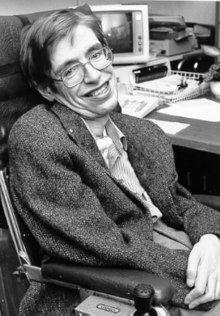Portal:Oxfordshire
The Oxfordshire Portal

Oxfordshire (/ˈɒksfərdʃər, -ʃɪər/ OKS-fərd-shər, -sheer; abbreviated Oxon) is a ceremonial county in South East England. The county is bordered by Northamptonshire and Warwickshire to the north, Buckinghamshire to the east, Berkshire to the south, and Wiltshire and Gloucestershire to the west. The city of Oxford is the largest settlement and county town.
The county is largely rural, with an area of 2,605 km2 (1,006 sq mi) and a population of 691,667. After Oxford (162,100), the largest settlements are Banbury (54,355) and Abingdon-on-Thames (37,931). For local government purposes Oxfordshire is a non-metropolitan county with five districts. The part of the county south of the River Thames, largely corresponding to the Vale of White Horse district, was historically part of Berkshire.
The lowlands in the centre of the county are crossed by the River Thames and its tributaries, the valleys of which are separated by low hills. The south contains parts of the Berkshire Downs and Chiltern Hills, and the north-west includes part of the Cotswolds; all three regions are Areas of Outstanding Natural Beauty. The county's highest point is White Horse Hill (261-metre (856 ft)), part of the Berkshire Downs. (Full article...)
Selected article
Thames Valley Police is the territorial police force responsible for policing the Thames Valley region, covering the counties of Berkshire, Buckinghamshire and Oxfordshire in South East England. It is the largest non-metropolitan police force in England and Wales, covering 2,218 square miles (5,740 km2) and a population of 2.42 million people. (Full article...)
Selected biography
Stephen William Hawking (8 January 1942 – 14 March 2018) was an English theoretical physicist, cosmologist, and author who was director of research at the Centre for Theoretical Cosmology at the University of Cambridge. Between 1979 and 2009, he was the Lucasian Professor of Mathematics at Cambridge, widely viewed as one of the most prestigious academic posts in the world.
Hawking was born in Oxford into a family of physicians. In October 1959, at the age of 17, he began his university education at University College, Oxford, where he received a first-class BA degree in physics. In October 1962, he began his graduate work at Trinity Hall, Cambridge, where, in March 1966, he obtained his PhD degree in applied mathematics and theoretical physics, specialising in general relativity and cosmology. In 1963, at age 21, Hawking was diagnosed with an early-onset slow-progressing form of motor neurone disease that gradually, over decades, paralysed him. After the loss of his speech, he communicated through a speech-generating device, initially through use of a handheld switch, and eventually by using a single cheek muscle.
Hawking's scientific works included a collaboration with Roger Penrose on gravitational singularity theorems in the framework of general relativity, and the theoretical prediction that black holes emit radiation, often called Hawking radiation. Initially, Hawking radiation was controversial. By the late 1970s, and following the publication of further research, the discovery was widely accepted as a major breakthrough in theoretical physics. Hawking was the first to set out a theory of cosmology explained by a union of the general theory of relativity and quantum mechanics. He was a vigorous supporter of the many-worlds interpretation of quantum mechanics.
Hawking achieved commercial success with several works of popular science in which he discussed his theories and cosmology in general. His book A Brief History of Time appeared on the Sunday Times bestseller list for a record-breaking 237 weeks. Hawking was a Fellow of the Royal Society, a lifetime member of the Pontifical Academy of Sciences, and a recipient of the Presidential Medal of Freedom, the highest civilian award in the United States. In 2002, Hawking was ranked number 25 in the BBC's poll of the 100 Greatest Britons. He died in 2018 at the age of 76, having lived more than 50 years following his diagnosis of motor neurone disease. (Full article...)
Topics
Selected images
Subcategories
Things to do
Find references for: A420 road | Abingdon, Oxfordshire | Abingdon School | Anthony Kitchin | Banbury | Banbury mutiny | Bicester | Bicester Community College | Blowing Stone | Boris Johnson | Brakspear | Brenda Rawnsley | Chiltern Main Line | Clanfield F.C. | Colin Greenwood | Debagging | Deddington | Degrees of the University of Oxford | Edward, the Black Prince | Edward the Confessor | European route E5
Expand: A4260 road | Alvescot | Appleton, Oxfordshire | Appleton-with-Eaton | Ardington | Ardington Wick | Arms of the University of Oxford | Ascott Earl | Ascott d'Oyley | Ashbury, Oxfordshire | Aston Rowant | Aston Upthorpe | Baldon Row | Balscote
Create: Banbury Cross Retail Park | Banbury Golf Club
WikiProjects
Related portals
Associated Wikimedia
The following Wikimedia Foundation sister projects provide more on this subject:
-
Commons
Free media repository -
Wikibooks
Free textbooks and manuals -
Wikidata
Free knowledge base -
Wikinews
Free-content news -
Wikiquote
Collection of quotations -
Wikisource
Free-content library -
Wikiversity
Free learning tools -
Wikivoyage
Free travel guide -
Wiktionary
Dictionary and thesaurus




























